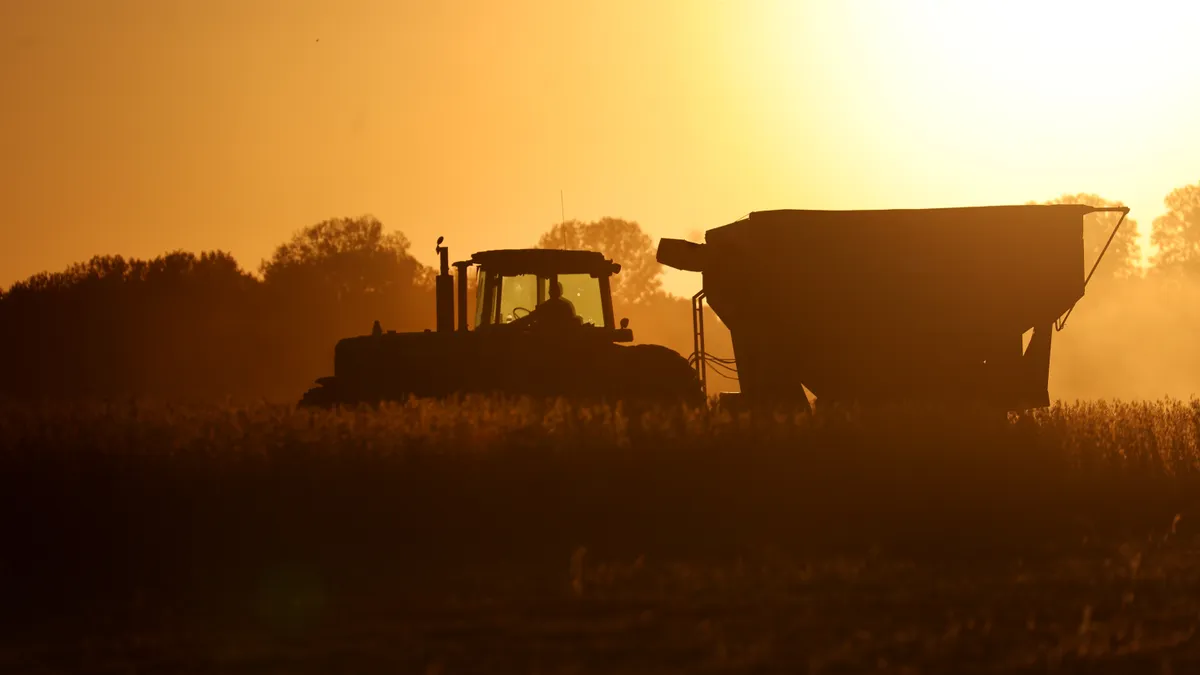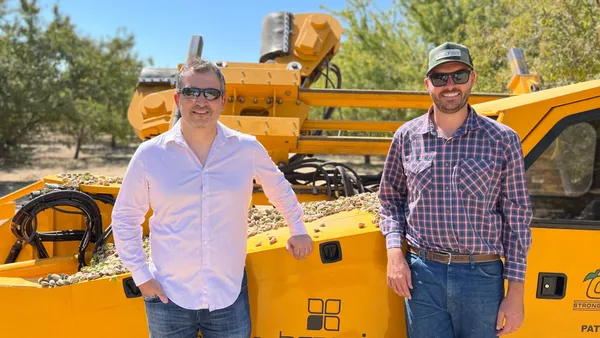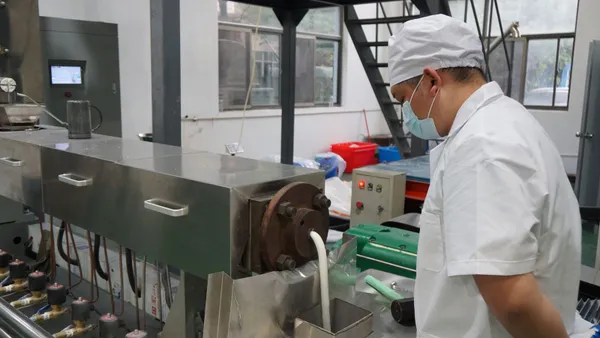Dive Brief:
- Shell and crop monitoring platform Arable are partnering on a low-cost carbon measurement system to advance sustainable agriculture, the companies announced June 27.
- Arable's in-field sensing devices will be placed at 20 locations in Brazil during the initial phase of the project. The technology will measure soil carbon from multiple crop types.
- The partnership is meant to simplify on-farm emissions monitoring and grow agriculture's role in the burgeoning carbon-offset market.
Dive Insight:
While sequestering carbon in farms and fields presents a lucrative opportunity for the agriculture industry, it's difficult to accurately measure how much carbon is saved through sustainable farming practices.
Arable's partnership with Shell aims to remove the complexity and increase reliability of carbon monitoring in agriculture, allowing farmers to more easily develop and sell carbon credits. Morgan Stanley estimates the voluntary carbon-offset market is expected to grow to around $250 billion by 2050 , up from $2 billion in 2020.
"It’s an honor to be part of a project that holds the potential to unlock the power of agriculture and create a scalable carbon solution that could be leveraged worldwide," Jim Ethington, CEO of Arable, said in a statement. "This is yet another example of the dynamic and diverse ways crop intelligence can be used.”
Agriculture made up approximately 11% of U.S. greenhouse gas emissions in 2020. To break down barriers to accessing carbon credit markets, Congress last year approved the Growing Climate Solution Act, which connects farmers to third-party verifiers through a U.S. Department of Agriculture registration program.
The costs of adopting more sustainable farming practices, however, will keep agriculture's participation in the carbon credit market limited for now. An S&P Global study found carbon prices are currently too low for soil carbon projects to be profitable unless they are done on a massive scale.











